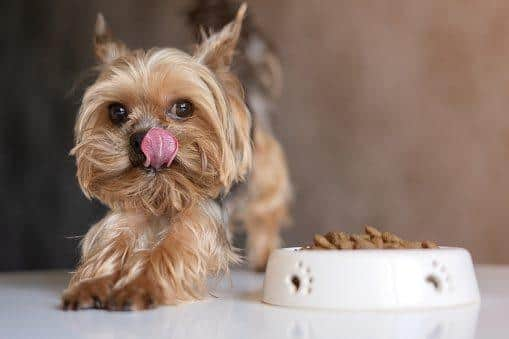I’m a pet food expert: avoid these five ingredients in your dog’s food
and live on Freeview channel 276
According to the Office for National Statistics, a significant portion of the population is feeling the pinch of rising costs, with 4 in 10 adults in Great Britain reporting that they have had to spend more than usual on their food shopping to obtain what they normally buy. This statistic highlights the broader economic pressures that are influencing consumer behaviours and affecting decisions even in areas as fundamental as pet care.
Adam Docherty, from Pet Know How, revealed the five ingredients that should be avoided in your pet's dog food.
1. Artificial Preservatives


Advertisement
Advertisement
Artificial preservatives such as BHA (Butylated hydroxyanisole), BHT (Butylated hydroxytoluene), and ethoxyquin are chemicals added to dog food to prolong its shelf life. However, these substances can pose health risks to dogs. Studies have suggested that they may be linked to the development of certain health issues, including cancer. Opting for natural preservatives like Vitamin C (ascorbic acid) or Vitamin E (mixed tocopherols) can be a safer choice for your pet's diet.
2. Artificial Colours
Artificial colours, including Red 40, Blue 2, and Yellow 5 and 6, are added to dog food to make it look more appealing to pet owners. Dogs, however, do not care about the colour of their food. These artificial colours have been associated with behavioural issues and cancer risk in animals. There's no nutritional benefit to having them in dog food, making them unnecessary and potentially harmful.
3. Meat By-products
Meat by-products are parts of slaughtered animals that are not fit for human consumption, including organs, bones, and sometimes beaks and feathers. While not all by-products are harmful and can be a source of protein, the quality and source of these by-products can vary greatly. They might include diseased tissues or organs that are not ideal for your dog's health. It's better to look for dog foods that specify the type of meat used, such as "chicken" or "beef", rather than generic "meat by-products".
4. Corn Syrup
Corn syrup is a sugar added to dog food to make it more palatable. Consistent consumption of sugary foods can lead to obesity, diabetes, and dental problems in dogs. It's important to avoid dog foods that list corn syrup or other forms of sugar high up on the ingredient list, as this indicates a high sugar content.
5. Propylene Glycol
Advertisement
Advertisement
Propylene glycol is a chemical used in dog foods to help maintain moisture and prevent bacteria growth. While it's considered less toxic than ethylene glycol (found in antifreeze), which is highly poisonous to dogs, propylene glycol can still contribute to health issues such as skin irritations and immune reactions. The FDA has banned its use in cat food, but it can still be found in some dog foods. Opting for products without this chemical is a safer choice for your dog's health.
When selecting dog food, it's advisable to read the ingredient list carefully and opt for products that use whole, recognisable ingredients. Choosing high-quality, nutritionally balanced food is crucial for the health and happiness of your pet.